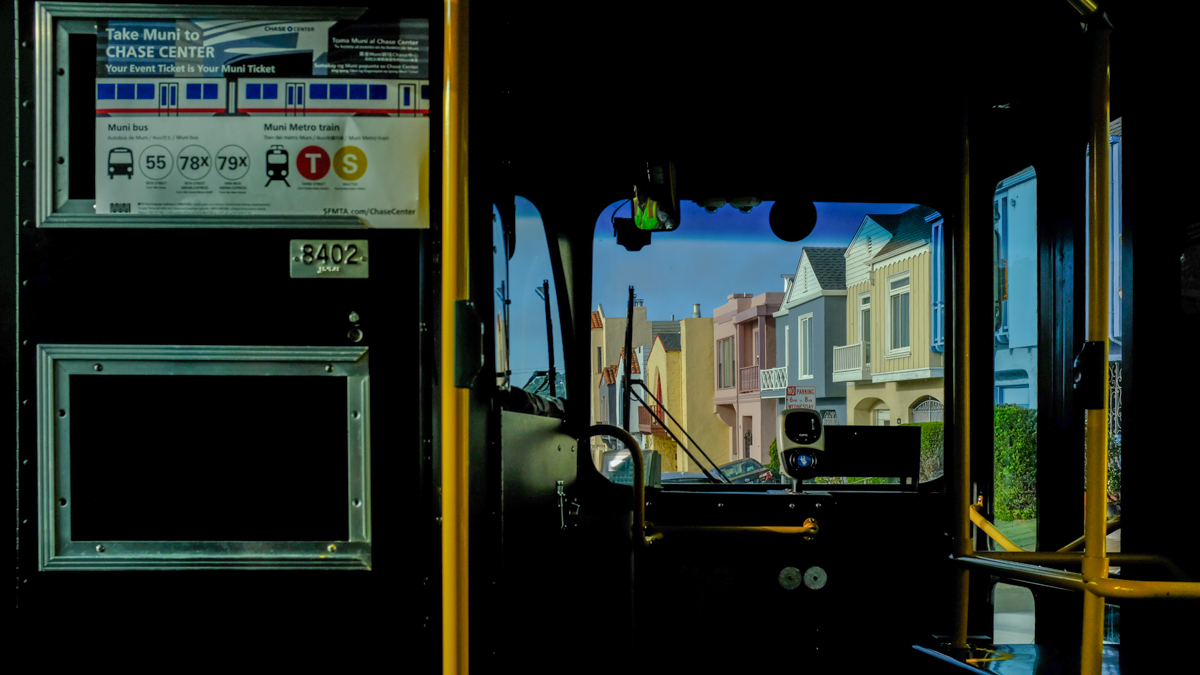SFMTA is expected to receive millions from the recent federal infrastructure bill, despite the U.S. Department of Labor’s recent decision to withhold over $12 billion in grant funding from transit agencies across the state.
Last week, the federal labor regulator determined that California transit agencies will not receive federal funding, citing a 2013 pension reform act that they say violated national standards on collective bargaining. But because SFMTA distributes pensions through the city’s system and not the state’s, SFMTA Director Jeffery Tumlin said on Tuesday that–unlike many other transit agencies in the Bay Area–the city is assured funds from the federal infrastructure bill signed by President Joe Biden this week.
“The city attorney’s office confirmed that SFMTA is eligible to continue receiving federal funds,” Tumlin said in a meeting on Tuesday. “We are very relieved this bill is finally signed and this money is coming through.”
The bill is expected to provide about $4.5 billion in transit funding for the Bay Area, according to SFMTA’s spokesperson Erica Kato, though how much will be allocated to San Francisco remains undetermined.
Federal transit funds are allocated by way of the Metropolitan Transportation Commission, a regional body that coordinates transit planning and financing for the nine-county Bay Area. The commission coordinates funding for 27 transit agencies, and allocates funds based largely on size and ridership.
SFMTA’s fortunate circumstance appears to be unusual among Bay Area transit agencies. Asked how many other agencies were subject to the withholding, Tumlin said: “I cannot confirm, but in my Monday general managers’ call I was the only one who was not deeply alarmed.”
For agencies around the region, the withholding could mean continued fiscal pain for transit operators amidst a statewide dependence on federal funds to keep buses running and workers paid, according to Randy Rentschler, director of the Metropolitan Transportation Commission.
“When this has been done in the past, the grants are [for] capital projects like to buy a replacement bus or to buy a rail car…all this COVID money went to keep the buses running right now,” Rentschler said. “It’s a bit of an unusual thing because unions are actually protesting the funds that would come to them.”
Governor Gavin Newsom condemned the Department of Labor’s determination in a letter on Nov. 10.
“Because of a dramatic decline in ridership, public transit agencies rely more than ever on these federal grants just to keep trains and buses running and their workforces employed,” Newsom wrote. “The grants being withheld also help provide vital mobility to low-income seniors, individuals with disabilities, and other transit-dependent riders.”
California is planning to litigate the matter, indicating that it will file a complaint against the Department of Labor and Amalgamated Transit Union, which represents transit works. The state plans to seek a stay order that, if successful, would keep the state eligible for federal funds while the dispute is litigated.
“How does this get resolved? Well, it appears it’s going to take some more time than it has already. Prior administrations determined that these protests didn’t have validity,” Rentschler added.
Kato said that while San Francisco is exempt from the federal withholding, the money that the city receives can only be used for capital projects such as vehicle replacement and system upgrades, and not for ongoing operations. The agency is facing a long-term deficit that is expected to exceed $46 million by 2026, and says it has already exhausted half of the federal funds it received from prior stimulus bills.
“This funding, while extremely important, will not solve our long-term funding challenges,” Kato said.
